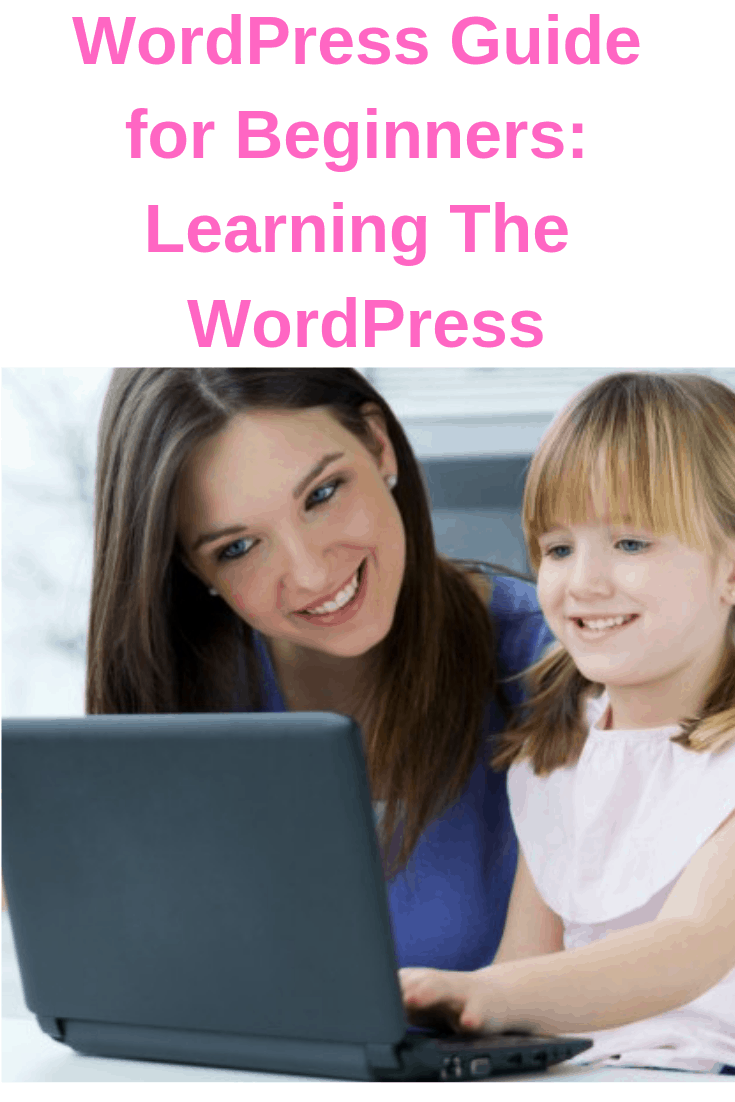
Learning WordPress can be a very long road for an inexperienced user. This guide can help you go from programming beginner to freelancing programming expert. An overview of the steps needed to become a competent WordPress developer.
Don’t believe the myths
When learning any field in programming, there are a ton of myths that you need to avoid!
No, you CANNOT learn to programme in 24 hours. Or a week. Or a month. To learn the entirety of programming world you will need to have a schedule. You can learn some of the basics in 24 hours, but you will never become a programmer in a day!
On the opposite is a myth saying you’ll need to be a genius on math. There is nothing further from the truth.
The Truth! There’s no reason for learning programming when there are tools to make websites. This is the most aggravating because its the hardest to explain. But put shortly, the question “why do I need to learn to code, if I have a WordPress theme?” can be answered with the following question “where would the themes come from if there were no programmers”.
Same with web development tools. There are no tools on planet earth that can write more tools, except programmers. Also, any tool that has or will exist comes with severe limitations.
Yes, you have to learn the basics of programming
The more you’ll learn about WordPress, the more you will learn how limited it is.
Here is the secret. WordPress is a platform, not a web development tool. Meaning, that a lot of the heavy work still requires you to flex your brain a bit and program. Here are some issues you might run into if you don’t learn how to program beforehand:
My theme is awesome! But I hate the styling of the widgets in the footer.
I want to build a membership site and I need x functionality, but no plugin exists.
I want to build a membership site, but my plugins conflict.
What would you do in these situations if you didn’t know how to program?
Now, please learn the basics of programming
Before you start off on your path to learn HTML and CSS, you should take a moment and relax.
The things you will need to learn are the following:
HTML: The building blocks of the front end of your website (the display).
CSS: This is the secret sauce to your website. Imagine that your HTML is a paint by numbers grid, and CSS is the paint. Every website uses CSS.
PHP: This is the black box of the website. Nobody sees it but you. It is what actually creates all of the functionality, does all the thinking, and delivers the content of your website. This is what real “programming” is. Learn it.
MySQL: Databases are where everything on your website is stored. You will need to learn how to safely interact with the database with PHP. Look up parameterized queries.
Something optional to learn is javascript. It is something that is great for animations or even delivering content to a user without them having to refresh a page. Also, there might be a time where you need to fix or update some javascript created by another developer.
Setting up WordPress
There are a couple of ways to install WordPress on your website. The absolute easiest is through your cPanel account. There is usually a program on your cPanel that will install WordPress for you. For example, QuickInstall has a one-click installation for WordPress. Another way is to download the WordPress source files and upload them to your server via FTP.
After installing WordPress, you will want to sign in to your WordPress site to set things up. There are many guides on setting up your WordPress site through the backend, but the basics you will need to learn are the following:
Installing your site theme: Even if you are planning on making your own theme, it advisable to set up someone else’s theme to base your work on. This will serve as a great jumping off point for your website.
Get familiar with plugins: they are easy to install and will provide most of the functionality of your website.
Menus: learn where these are and how to set them up. You can create menus that are useable on any part of your website.
Widgets: widgets are not to be confused with plugins. Widgets are user interface elements (like a Twitter feed), while plugins are groups of files that can potentially make sweeping changes to your site’s functionality.
Learn the difference between pages and posts. These things have very distinct and separate purposes.
This will give you enough ammunition to set up a basic website.
How does content get delivered to the user?
It is helpful to know how WordPress takes your content and presents it to the end user.
If you learned PHP, you will probably know how a website is presented to the user. It sounds silly, but it’s very helpful to know how the browser interprets data, and what PHP’s purpose is in filling in content, how the website is compiled etc.
Themes define the way that WordPress presents content to a user. They do this with PHP files that serve as templates to display certain parts of your website, like a blog post page or the header. They also include CSS and PHP files and can even provide functionality to a website.
There are also certain rules that you need to follow if WordPress is going to recognize your theme. However, the main parts will be the header, the index page, the sidebar, the footer, functions.php, and the stylesheet.
One more thing you might run across is page templates. Page templates are simply different ways to display any single site page.
Also, learn about post types. Everything on your website is a post type, whether they are pages, posts or attachments. A page template is a template for a certain post type. Learning about post types might clear a lot of confusion down to the road.
There are lists of all the global variables that WordPress provides, that range from the content you provide to users, to information on the visitors themselves.
Don’t bother memorizing these, just reference them as you go and be familiar with what type of global variables that WordPress provides you. If you don’t find them you might have to add the functionality in yourself, either in the form of a plugin or simply in the function.php file. Global variables are essential in WordPress development.
Plugins
Plugins allow you to add functionality to your website. There is actually a huge plugin market for WordPress.
Essentially plugins are groups of files that alter or add functionality to websites. There are certain rules, however, to setting up your files so that WordPress reads them.
It is also important to learn when to add things to functions.php vs creating a plugin.
Hooks: Actions and Filters
Hooks will allow you to “hook” one of your functions into WordPress so that it is run at a specific time. If you don’t use hooks, many types of functionality would not be possible. Learning what these are and how to use them will save your life, and free up a world of possibilities.
Make sure to learn the difference between the two, and how to use them. This knowledge will allow you to heavily alter the functionality of WordPress, and will greatly open doors for your site functionality.
Actions are hooks that allow you to run a function when a certain WordPress event occurs. For example, when you create a post, you might want to update a value in your database.
Practice
Naturally, you have to practice. However, if you want to take the more safe route, rent out a small shared hosting package grab a theme, and create a small blog website. (Make it something you’d want to use! In fact, use it!).
You can also use a local server on your computer, if you don’t feel like spending any money, and don’t really want to share your work with anyone.
When you have learned your way around WordPress, start another little site. However, this time is a bit more ambitious, and this time, try your hand at putting in all the functionality yourself. If you’re confused about something, you can always rip off someone else’s work and learn from them.
WordPress is a much larger topic than many people assume at first. However, if you take it one bite at a time, you will eventually learn everything you need to when it comes to creating WordPress websites.
It’s a skill that is highly in demand and doesn’t require a degree. Keep trying and you will become an expert!
Installing WordPress
If you decided that you would like your own domain name and you wish to use WordPress for your website, here is do-it-yourself information about how to install WordPress from the cPanel of your hosting account.
When you have chosen and paid for your domain name, it is time to arrange the hosting for your site.
Your hosting company will normally send you confirmation of your account with them and information about your Name Servers and how to log in to your account. When you get this information, you will be able to install your WordPress site. Here’s what to do:
Open up your cPanel using the log-in information you received in the email from your hosting company.
Once inside, scroll down until you locate the ‘Software/Services’ section and see the Fantastico icon. Click on that.
Scroll down further until you get to the list titled ‘Blogs’
Choose “WordPress” from the list
On the next page select ‘New Installation’
A new page will open on which you will fill in the information required –
‘Install on domain’ enter in the domain, add-on, or sub-domain that you have selected earlier.
‘Install in directory’ – leave this blank
‘Username’ – use a pen name, or something else, not ‘Admin’, as this will assist in securing your site against the possibility of hackers.
‘Site name’ – if you wish to self-brand, use your own name, or a pen name, but if you desire to sell lots of different product brands from various sites, then use your main keyword phrase for this particular product.
A keyword or keyword phrase is a word or a phrase that people type into their browser search window when they are looking for something, e.g. best teeth whitener, best diets, etc.
As soon as the person hits the enter key, the search engines bring up websites that have that keyword/keyword phrase listed on them somewhere because those sites are likely to have the information the person is looking for.
If your site is selling products, you should have a well-searched for keyword or keyword phrase as your domain or site name, and particularly one which doesn’t have much competition from other sites.
That way you have a much better chance of your site name coming up on the searcher’s screen.
Fill in the rest of the details as required and click on ‘Install WordPress’
Click on ‘Finish Installation’
When the next screen comes up, select to have details of your site emailed to you and save for future reference.
Congratulations! You have just installed WordPress. Now you are ready to win the world!

![Pinterest: Effective Guide for Beginners [Infographic]](http://blog.red-website-design.co.uk/wp-content/uploads/2014/09/pinterest-for-beginners-how-and-why-you-should-be-using-it1-1.jpg)

![Guide for Beginners: How to Market Your Business on Instagram [Infographic]](http://blog.red-website-design.co.uk/wp-content/uploads/2018/11/A-Beginners-Guide-to-Instagram-Marketing-for-Small-Businesses.jpg)